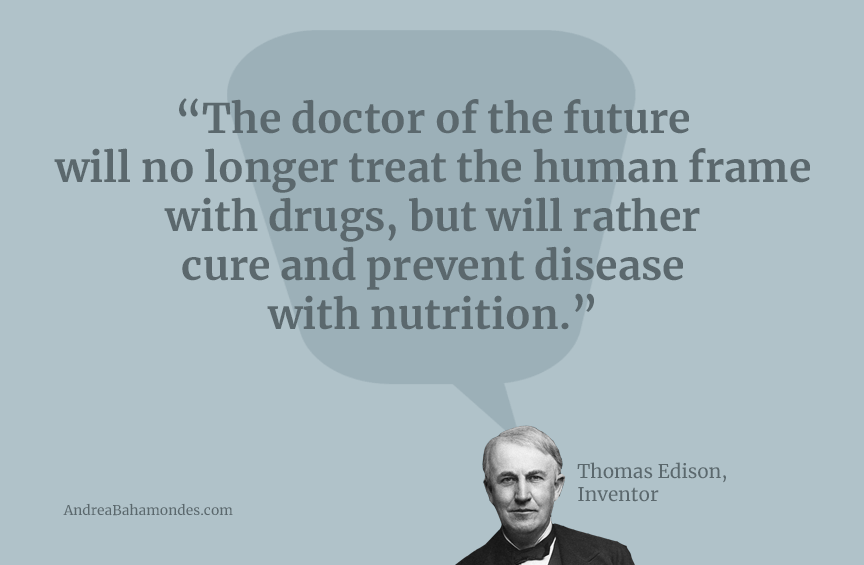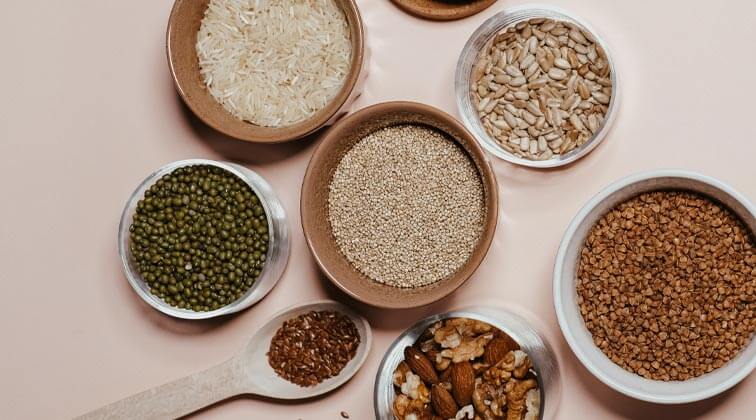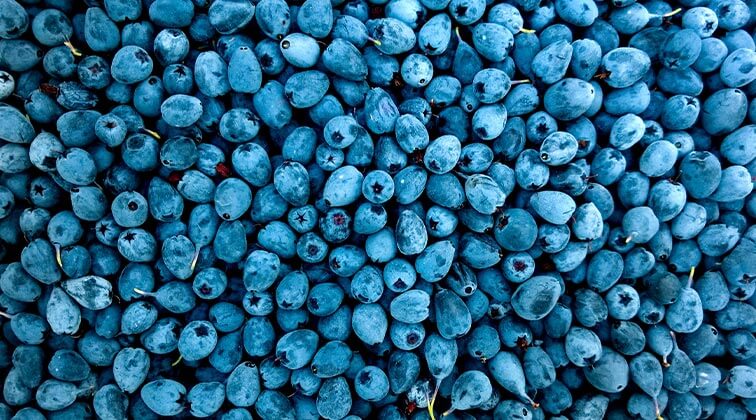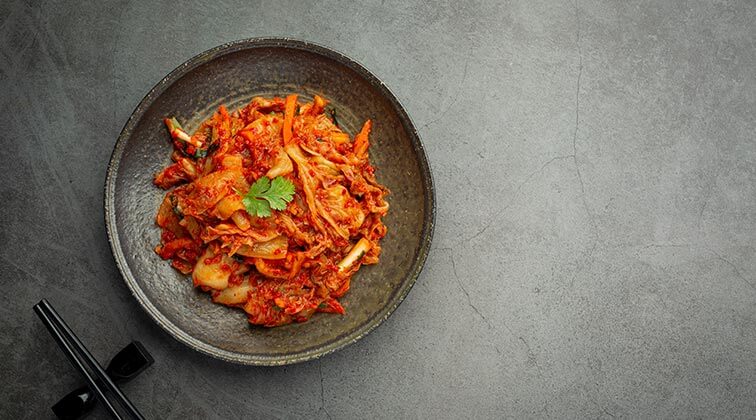Let’s state the obvious right from the start…
Your diet can have a bigger impact on your overall mental health than you thought.
We usually look at therapy and medication as forms of treating mental health, but several studies have already proven in the last few years that food affects your brain too.
Also, some very smart folks have mentioned stuff along the way…

But, how does this happen? How are your gut and brain connected?
Great question…
The connection between your gut and brain [The Gut-Brain Axis]
Turns out these two, your gut and your brain, have a complicated relationship, but I guess science has made it very clear:
What you eat has a direct impact on your brain chemistry.
This means that certain nutrients support your brain function and reduce symptoms like depression and anxiety and, of course, you know what that means, some foods can play against your mental wellness.
But, the fascinating part of all this is the actual connection, for this post, anyways.
Connected by the vagus nerve, your gut and brain can send messages to each other…
- Your gut can influence your emotions
- And your brain can affect the type of bacteria living in your gut
Uff… The potential for a very vicious circle here, right?
If you want to learn more about this, I recommend you follow Dr. Uma Naidoo, author of This is Your Brain on Food.
How certain foods can affect your overall mental health
The main concern is how society depends heavily on processed foods.
A diet high in processed foods and sugars can lead to…
- Inflammation
- Oxidative stress
- Imbalanced gut bacteria
All of them are directly linked to poor mental health.
The problem is they are responsible for triggering Dopamine in your brain, which is associated with the Brain Reward System.
According to Simply Psychology, “When exposed to a stimulus which is rewarding, the brain responds by releasing an increased amount of dopamine, the main neurotransmitter associated with rewards and pleasure.”
Unhealthy diet > Cravings/Addiction > Dopamine > Mental Health > Emotional Behavior
Say hello to Mindful Eating

Are you a mindless eater?
Let’s be honest, many of us are. We consume food without paying attention to what, how, and why we are eating it. This can contribute to many negative mental health outcomes.
The solution to this is Mindful Eating, besides being a trendy term, is the art of caring and appreciating what we eat.
It involves paying full attention to the act of eating without distractions, slow eating, savoring each bite, and being fully present in the moment.
You can also care more about your ingredients, their sources, and how they are prepared. The point is that it helps you become more aware of your body’s needs and desires.
How to get started with Mindful Eating
With a bit of clean eating and some journaling, you can change your diet and possibly, your moods and emotional behaviors.
- Remove all processed foods, sugars, etc. from your diet for a week
- Little by little, start bringing some of those foods back into your diet
- Make a note in your journal about how each one of those foods makes you feel
- Now you can make some long-term decisions
Do you feel like a website undergoing an A/B Split Testing experiment? Good, because that’s pretty much what you’re doing.
All trends and buzzwords aside, simply start paying attention to how eating different foods make you feel.
The right foods to improve your mental health
It’s important to note that diet is just one aspect of mental health and should not be relied upon as a sole treatment for mental health conditions. However, incorporating these nutrient-rich foods into your diet can be a simple and effective way to support your mental health and improve your overall well-being.
Omega-3 Fatty Acids

Fatty acids are critical for a range of physiological processes, including brain health. But, they are not produced by your body, so they need to be provided by your diet.
Some of the benefits of these fatty acids:
- Reduced symptoms of anxiety and depression
- Improve your mood
- Enhanced cognitive function (memory, attention, and executive function)
- Reduces inflammation and oxidative stress in the brain
- Boost of cardiovascular health
And here are some examples of foods containing Omega-3 fatty acids:
- Salmon
- Avocado
- Flax seeds
- Chia seeds
- Walnuts
- Canola oil
- Brussels sprouts
B Vitamins

B Vitamins are also important because they play a critical role in brain function and have been shown to have a positive impact on mood, cognitive function, and overall well-being.
Some of the benefits:
- Improved mood including a reduction in symptoms of depression and anxiety
- Improved cognitive function including memory and processing speed
- Reduced symptoms of anxiety including decreased worry
- Decreased risk of cognitive decline (lower risk of dementia)
- Improved sleep quality
- Increased energy levels
Here are the foods rich in Vitamin B:
- Beef liver
- Fish
- Chicken
- Eggs
- Dairy products
- Beans
- Spinach
- Bananas
- Nuts and seeds
Antioxidants

Antioxidants got “Superfood” status 😎.
They help neutralize harmful free radicals in your body, which can damage cells and contribute to the development of more serious and chronic diseases.
They have many benefits:
- Protection from oxidative damage
- Improved mood and cognitive function (Regulating the release of dopamine and serotonin)
- Reduced inflammation
- Reduced risk of depression and anxiety
- Improved memory and brain function
- Lower risk of developing Alzheimer’s disease
And here are the main players in the antioxidant game:
- Berries
- Dark chocolate
- Artichoke
- Pecans
- Red cabbage
- Beans
- Spinach
- Beets
- Kale
Fruits and Vegetables
These nutrient-rich foods are packed with a variety of vitamins, minerals, and antioxidants that support your brain.
The British Journal of Nutrition found that individuals who consumed a diet high in fruits and vegetables had better cognitive function and memory compared to those who consumed a low fruit and vegetable diet.
Here are a few key benefits of eating a diverse array of fruits and vegetables:
- Provides a wide range of essential vitamins and minerals
- Boosts antioxidant levels
- Increases fiber intake (Helps regulate appetite and improve mood)
- Promotes healthy gut bacteria
- Reduced symptoms of anxiety and depression
These are some of the healthiest fruits and vegetables:
- Sweet potato
- Sweet red peppers
- Broccoli
- Dark Leafy Greens
- Avocado
- Blueberries
- Tomato
- Bananas
Fermented Foods

Often overlooked when it comes to mental health, these probiotic-rich foods can play a significant role in promoting a healthy brain and mood.
Let’s take a look at how fermented foods can help:
- Improved gut health
- Regulate neurotransmitters and reduce inflammation
- Stress reduction
- Better mood regulation
Here are the best-fermented foods for your brain:
- Yogurt
- Kefir
- Sauerkraut
- Kimchi
Conclusion
One more thing before you hit the fridge looking for any veggies…
Don’t forget that while a good diet, including some of these foods, can have a positive impact on mental health, it’s not the only factor. Exercising regularly, developing good sleeping habits, and reducing stress are also essential for overall mental wellness.
It’s all about balance, baby!
Images by: Roman Odintsov, Mikhail Nilov, Polina Tankilevitch, Olga, jcomp, Vie Studio.





0 Comments